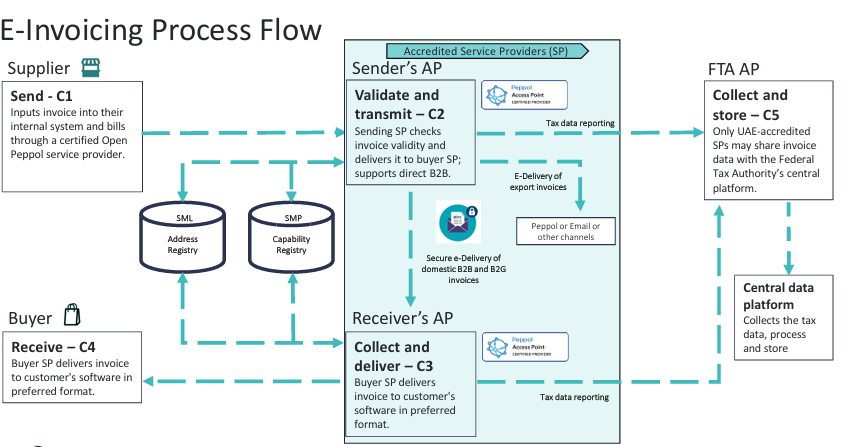eInvoicing in the UAE
eInvoicing Impact Assessment and Implementation
CLA Emirates [formerly Emirates Chartered Accountants Group] brings proven expertise in conducting e-Invoicing impact assessments and guiding businesses through seamless implementation, with clarity, precision, and confidence.

Call for Consultation
Mr. Arun Sankaran | Associate Director - Management Accounts
+971 50 193 4860
Email: Arun.Sankaran@claemirates.com

How the UAE eInvoicing System Works
| Step | What Happens |
|---|---|
| 1 | The supplier creates an e-invoice in XML format |
| 2 | Sender’s ASP validates & transmits it |
| 3 | buyer’s ASP collect, validate & deliver |
| 4 | buyer receives the invoice |
| 5 | In parallel, the sender’s and buyer’s ASP reports tax data document (TDD) to FTA |

Note: Only invoices in structured digital formats (not PDFs or scanned copies) are accepted as valid e-invoices.

Why Choose CLA Emirates?
CLA Emirates is a leading audit, tax, and advisory firm in the UAE, helping businesses navigate e-invoicing compliance with confidence. With a presence in Dubai, Abu Dhabi, Sharjah, and JAFZA, we offer end-to-end support tailored to UAE regulations and the FTA framework.
Our services include:
1. Readiness Assessment and Gap Analysis
- Review existing invoicing processes and ERP capabilities
- Identify compliance gaps based on local e-Invoicing mandates
2. Regulatory and Compliance Advisory
- Guide your team on Peppol framework, PINT AE standards, and FTA specifications
- Clarify technical and VAT compliance requirements for your industry
3. ERP and System Integration
- Align your accounting or ERP software with e-Invoicing data formats (XML)
- Ensure compatibility with the FTA’s portal or certified access point
4. Technology Partner Coordination
- Connect you with reliable, FTA-approved technology providers
- Facilitate the implementation of scalable e-Invoicing solutions
5. Employee Training and SOP Development
- Train finance and IT teams on new invoicing workflows
- Create internal documentation for seamless operations
6. Post-Implementation Support
- Offer continuous monitoring, updates, and compliance reviews
- Support with audit preparation and error resolution
